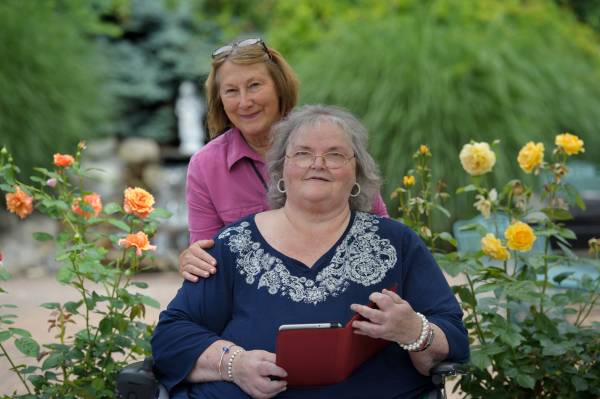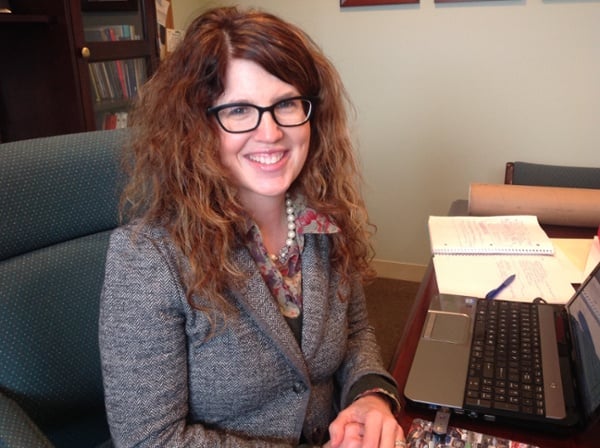 According to a recent poll, the number of adult children providing personal or financial assistance to their parents has tripled in the last 15 years. Becoming a caregiver is a role few people plan for. Most people are thrust into the caregiver role unexpectedly, often when a parent suddenly suffers a stroke or a chronic condition worsens. This often inevitably leads to caregiver burnout and less effective management of a senior parent’s health needs.
According to a recent poll, the number of adult children providing personal or financial assistance to their parents has tripled in the last 15 years. Becoming a caregiver is a role few people plan for. Most people are thrust into the caregiver role unexpectedly, often when a parent suddenly suffers a stroke or a chronic condition worsens. This often inevitably leads to caregiver burnout and less effective management of a senior parent’s health needs.
The challenge is to provide quality care for your parents without compromising your own health. The best way to do this is to navigate around common caregiver pitfalls so you’ll be prepared for the unexpected.
1. Aging Parent's Health Trouble Signs
Sometimes it’s not until a family get-together, when deep conversations take place that you begin to uncover the real health state of a parent. This is when you realize that dad hasn’t been seeing very well or that mom has been leaving appliances on.
Some trouble signs to watch out for include:
- Unusually messy surroundings and yard
- Stacks of unopened mail
- Appliances that have been left on, like the stove
- Piles of dirty laundry
- Rotting food in the refrigerator
- Piles of garbage
These signs indicate your loved one may be having trouble handling everyday tasks and if so, it is probably time for you to step in and help.
2. Start Asking “Tough” Questions
Now is the time to start asking tough questions about living wills, health care proxy, and power of attorney. Speak with your parents about signing a doctor’s “release form,” which would grant you access to their private medical information, allowing you to help manage their healthcare appointments and documents.
Consider this: A trained social worker was able to broach this sensitive subject with her parents by explaining, “If something goes wrong, I have no information to carry out your preferences; now is the time for all of us to sit down and talk.” If you are ever unsure how to start the conversation, this example may work for you.
3. How Well Can Your Parents Handle Day-to-Day Activities
Apart from your personal observations, a health care professional can conduct a formal assessment of your loved one based on nationally recognized criteria. The cost of this assessment can be absorbed by insurance. Also, document how much assistance your parent may need in everyday tasks such as getting dressed and showering, mobility, managing medications, toileting, etc. This will help you gauge how involved you will need to be as a caregiver. It will also help you determine if an assisted living community and any additional care services would be a worthy consideration.
Examine the Financial Aspects of Care
Perhaps you are considering moving your loved one to an assisted living community or maybe you are making arrangements for them to remain at home and receive care. Either way, these choices will affect their long term financial resources. If mom or dad has private insurance, this can help pay for their long term care. Seniors who qualify for Medicaid can receive funds to help cover caregiver costs. A number of eldercare programs can also help financially with long term care and senior living, under specific guidelines.
For more information on financial and health care services, check out online organizations such as National Alliance for Caregiving and government resources such as Eldercare.gov.
Key Takeaways:
- According to a recent poll, the number of adult children providing assistance to their parents either personally or financially, has tripled in the last 15 years.
- Becoming a caregiver is a role few people plan for; many caregivers are thrust into the situation unexpectedly, often when a parent suddenly suffers a stroke or a chronic condition worsens.
- Sometimes it’s not until a family get-together when deep conversations take place that you may uncover the real health state of a parent.
- Document how much assistance a parent needs in daily tasks like getting dressed and showering, mobility, managing medications, toileting, etc. This will help gauge how involved you need to be as a caregiver and help to determine if an assisted living community would be a good fit.
Independent and Assisted Living
If you are interested in learning more about independent and assisted living communities for your aging parents please visit www.umh.org to learn more about our communties and why they would be right for you!






 According to a recent poll, the number of adult children providing personal or financial assistance to their parents has tripled in the last 15 years. Becoming a
According to a recent poll, the number of adult children providing personal or financial assistance to their parents has tripled in the last 15 years. Becoming a 